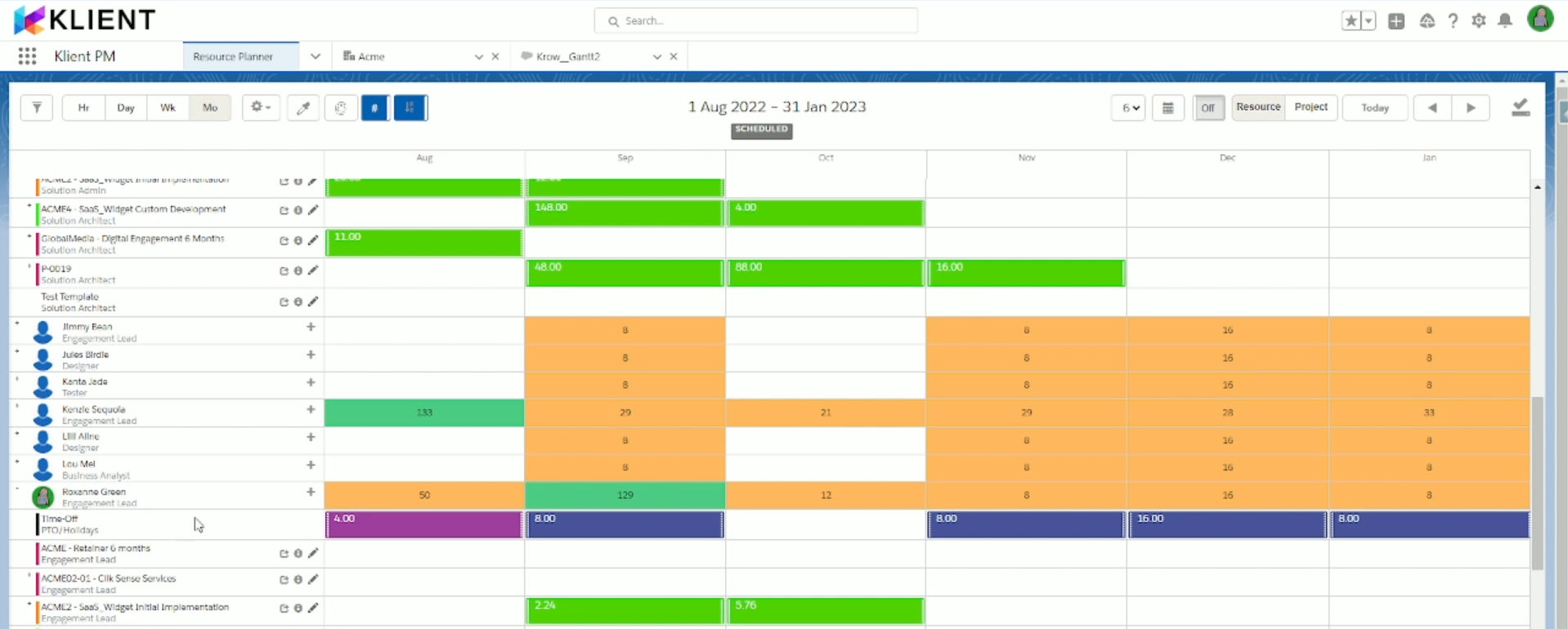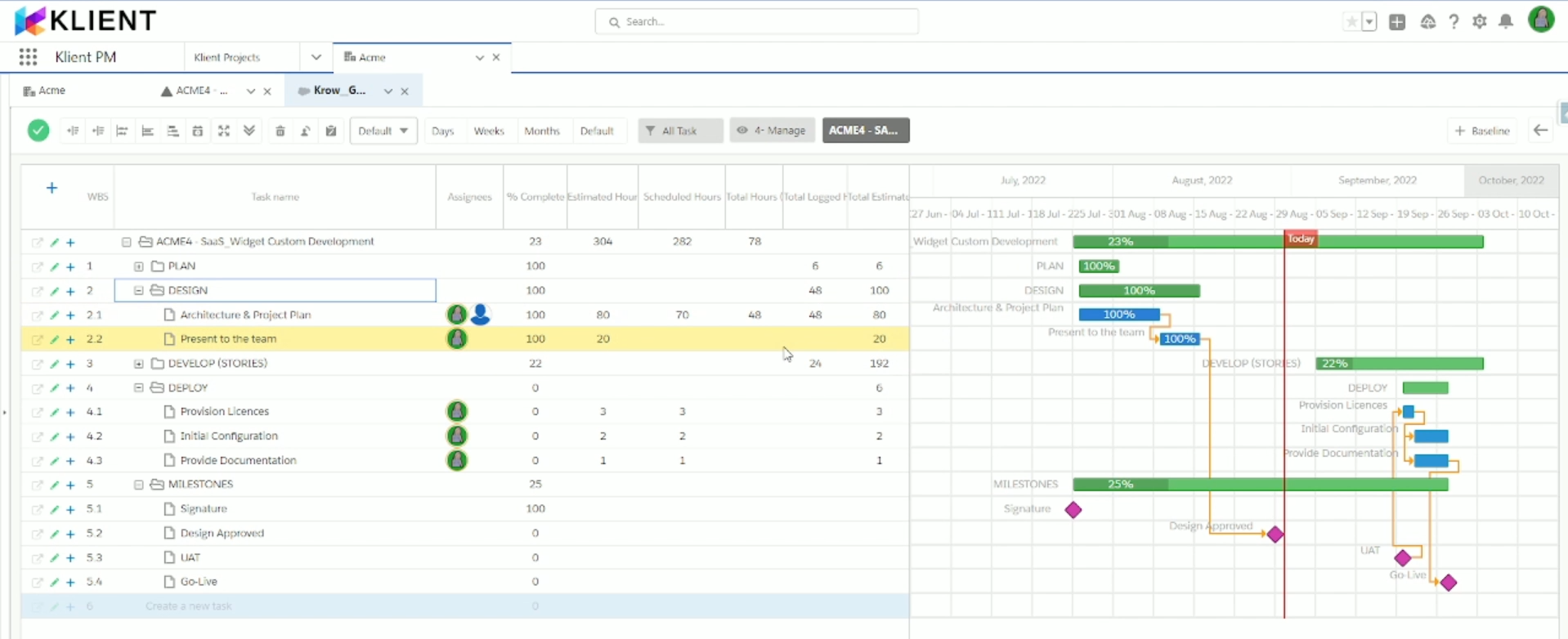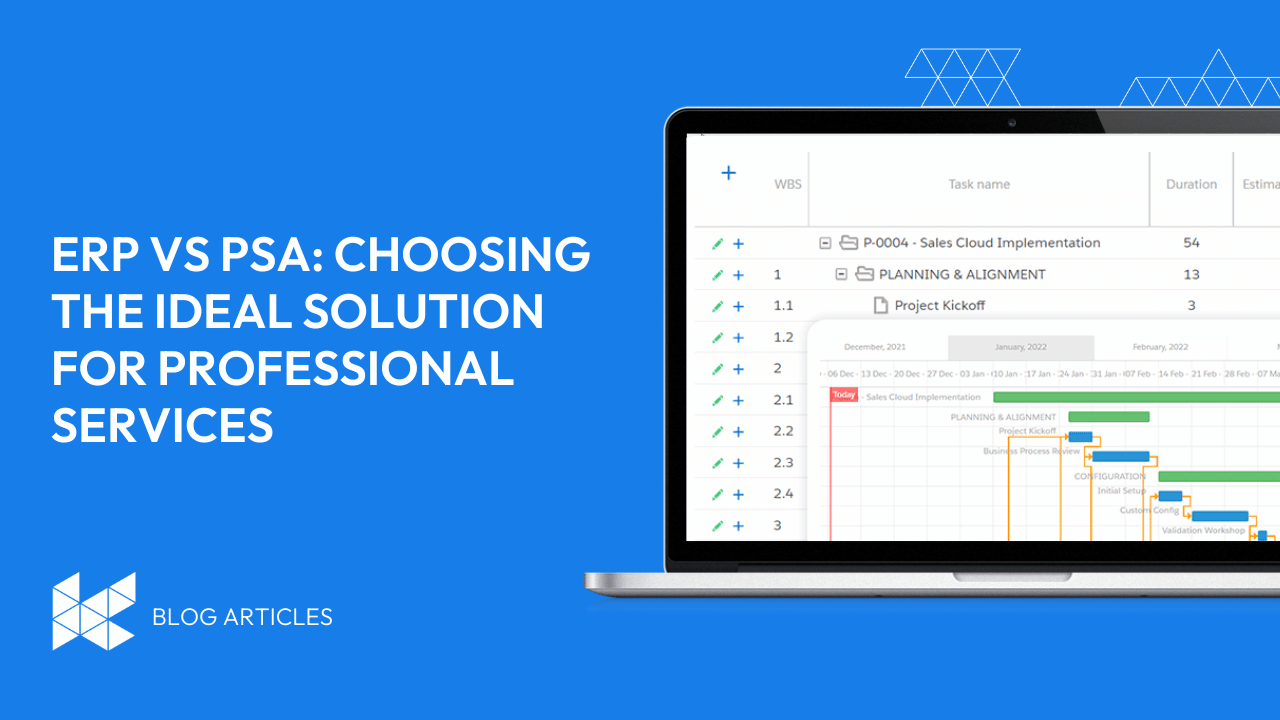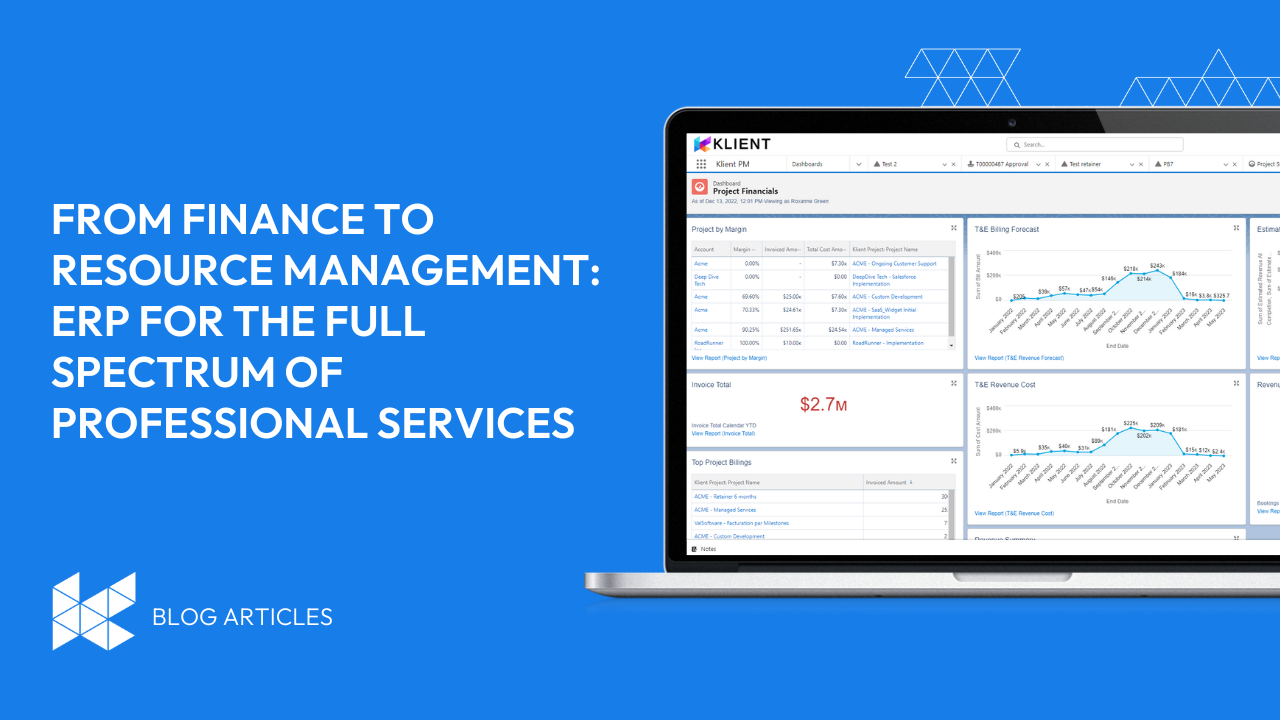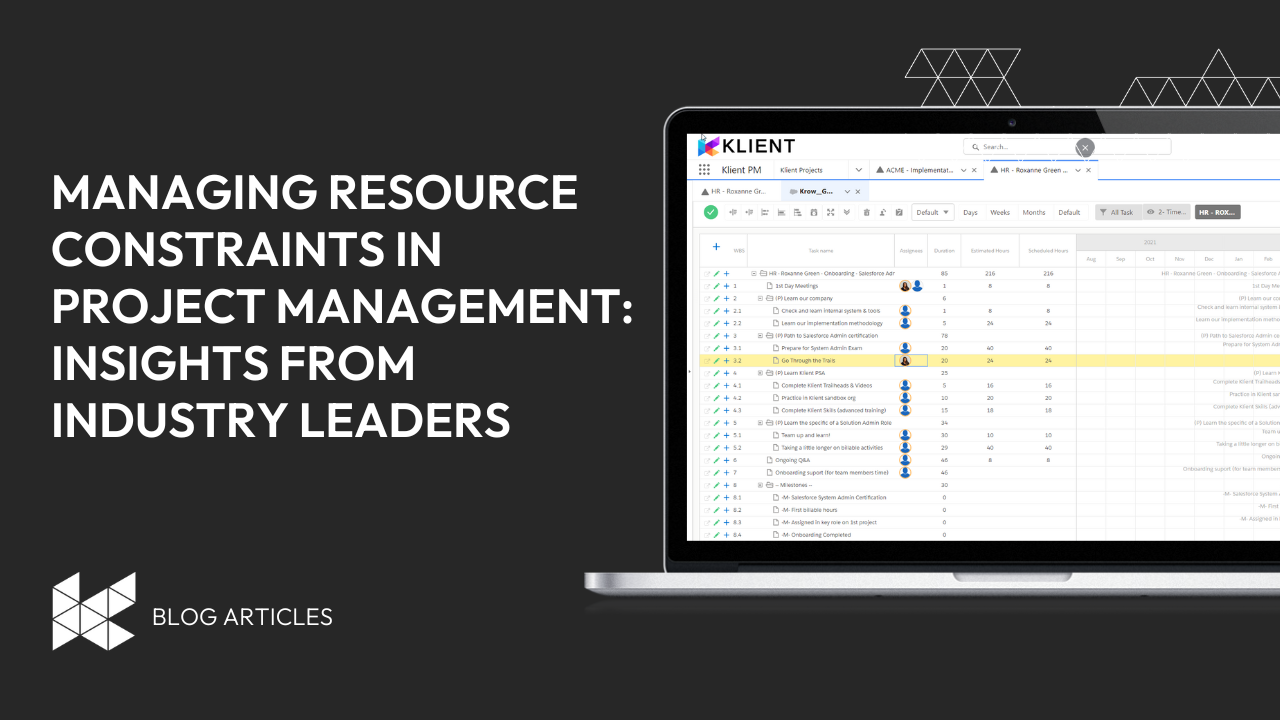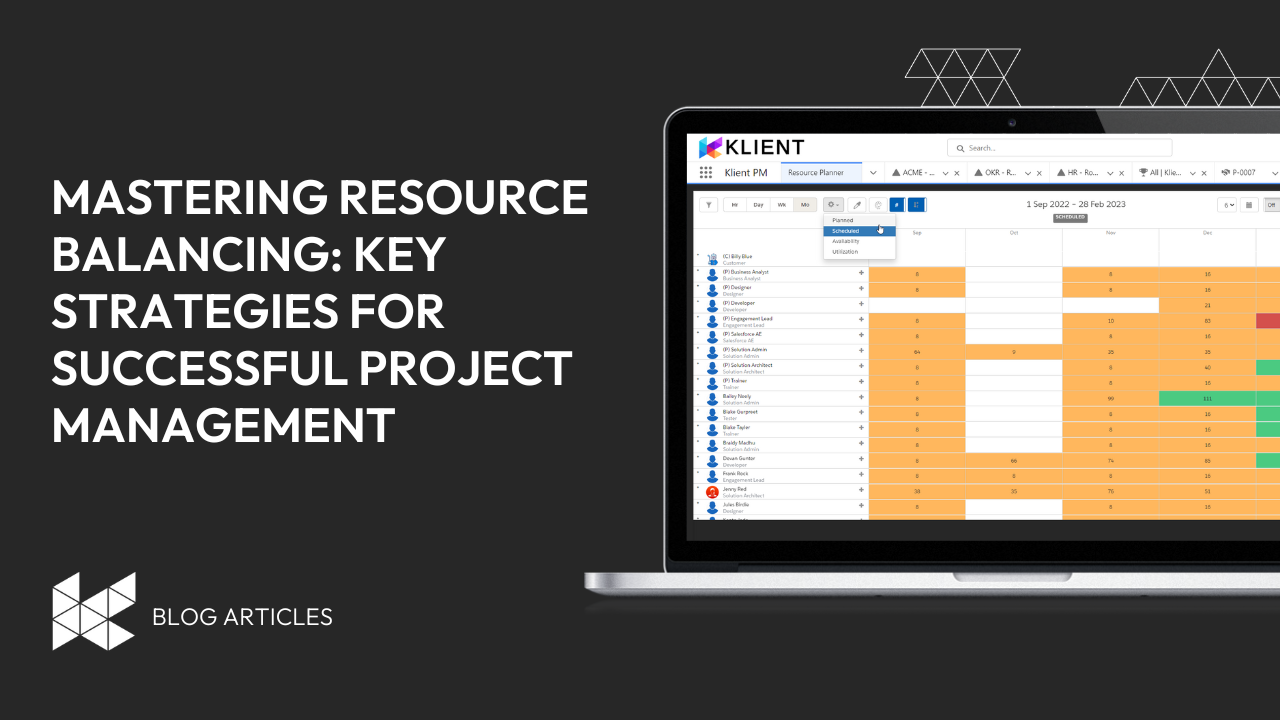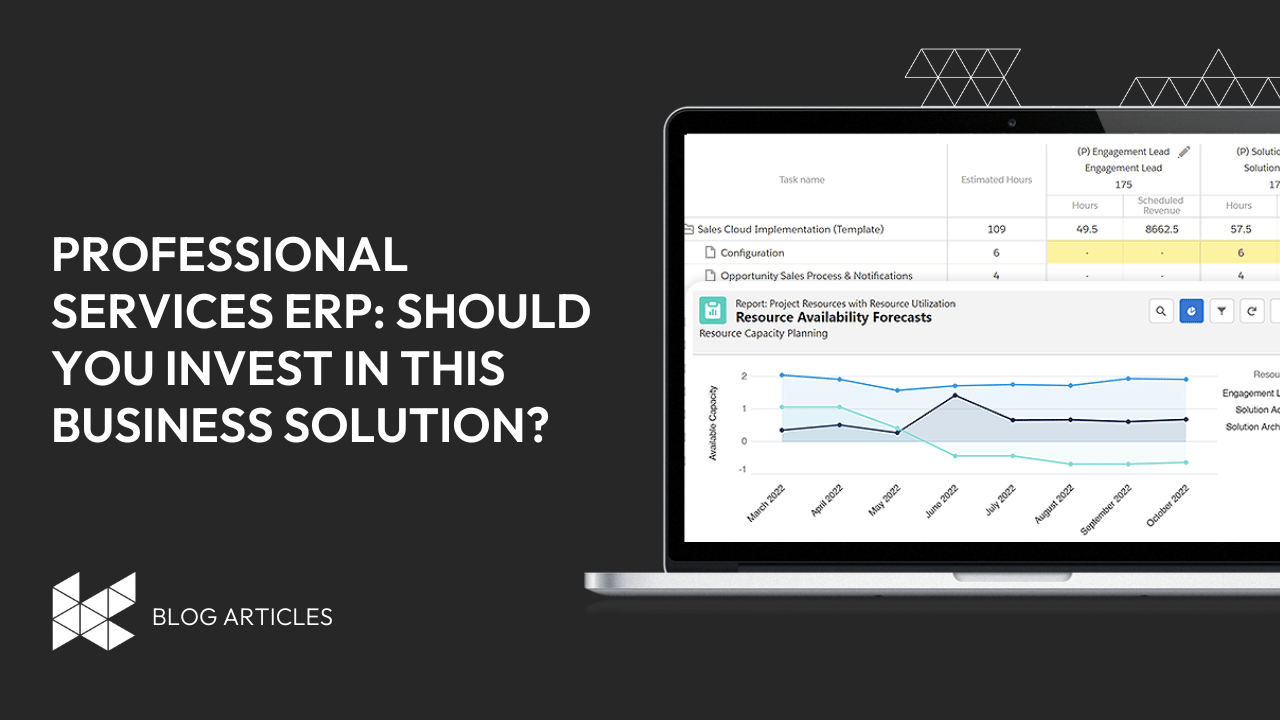
Professional Services ERP: Should you invest in this business solution?
Business processes have been streamlined and data consolidated using enterprise resource planning (ERP) solutions.
Despite knowing the potential benefits of ERP, professional service firms may wonder if it’s the right choice for their industry!
This article will provide a comprehensive overview of ERP solutions for professional services. It will weigh the pros and cons, and discuss the alternatives available.
Keep reading to find out if an ERP is the best solution for your professional services company!
Book A Meeting With A Klient PSA Expert
- What is an ERP for professional services?
- Benefits of ERP for professional services companies
- Disadvantages of ERP for professional services companies
- Why PSA tools are a smarter option for professional services firms
- How to choose the right PSA for your professional services company
- Streamline Your Professional Services Business With The Right Platform
What is an ERP for professional services?
ERP systems handle a variety of business management functions, including:
- Financial management
- Human resources
- Project management
- Customer relations
- And much more!
Professional services ERP systems are designed to meet the unique needs of industries like consulting, legal, accounting, and architecture. They emphasize resource allocation, billing, and project-based functionality.
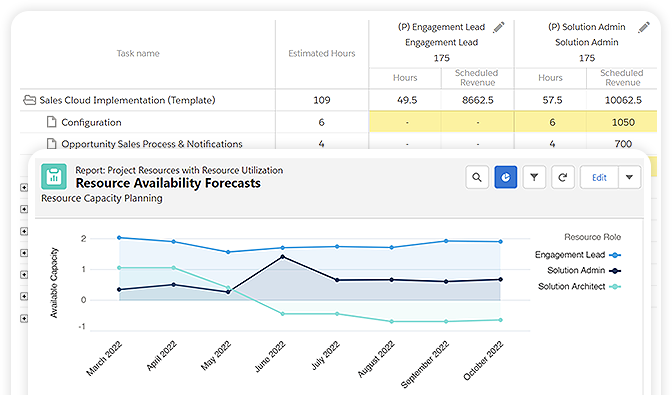
With an ERP, a professional services company can:
- Increase efficiency
- Provide visibility
- Have better control over their projects and resources
- Reduce operational costs
- Improve customer satisfaction
In a single, unified platform, they assist businesses with managing financial transactions, monitoring deadlines, allocating resources, tracking expenses, and evaluating performance.
Project management can be streamlined with an ERP system for professional services. For example, team members can collaborate more effectively and complete tasks on time and within budget!
As a result, businesses can deliver high-quality projects…
… which leads to higher customer satisfaction and repeat business.
Resource management is another key feature of professional services ERP systems. These systems ensure that the right people work on the right projects at the right time.
With their data, businesses can allocate resources more effectively. This can improve project outcomes and profitability and minimize overbooking and underutilization of resources.
Business owners can also automate the billing process with ERP systems for professional services. By automating the billing process, these systems help businesses generate accurate invoices and track payments more efficiently.
Billing errors and delays get reduced and everyone gets paid on time!
A professional services ERP system can also offer additional functionality, such as:
- Integration with CRM
- Tracking of time and expenses
- Reporting and analytics
In short, these systems provide businesses with a comprehensive suite of tools for managing all aspects of their business.
It’s like having a GPS system for your business – you know where you are, where you’re headed, and can adjust the course as needed to reach your destination!
Benefits of ERP for professional services companies
The average ROI of Enterprise Resource Planning (ERP) implementations is $7+ for every dollar spent. But ROI alone isn’t the only benefit!
Here are just a few more benefits of these systems.
Improved project management
ERP systems track timelines, tasks, and costs. As a result, the organization works faster and more collaboratively!
It’s easy to monitor a project’s progress with an ERP system and identify potential roadblocks before they become big problems.
Better resource management
With detailed insights into workforce availability and utilization, resource allocation can be made more efficient.
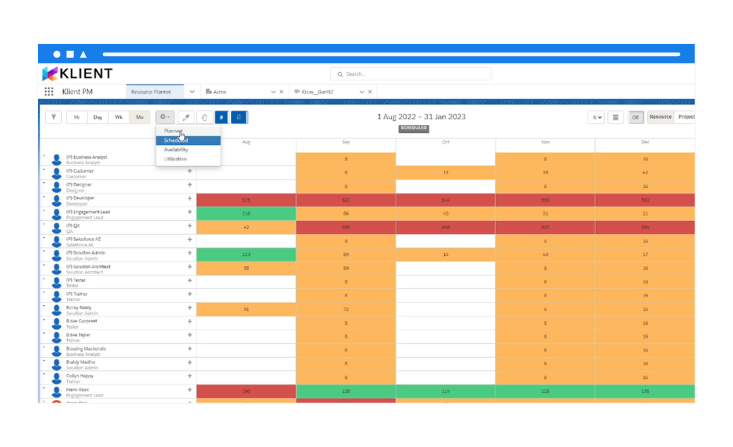
Managers can make better resource allocation decisions with real-time data about employee schedules, skills, and workload.
Team productivity goes up, and revenue goes up.
Streamlined financial management
ERP software automates complex financial processes, supports multiple currencies, and analyzes real-time data.
Then you can forecast your finances and manage your cash flow better.
Finance teams can track the financial health of the organization and make informed budgeting and spending decisions with an ERP system.
Enhanced reporting and analytics
With ERP systems, you can create customized reports and gain valuable insights to help you decide what to do.
Managers can easily access real-time data about project profitability, resource utilization, and revenue growth with ERP.
Increased customer satisfaction
With a professional services ERP solution, you can manage client relationships more effectively, which means more satisfaction for your clients!
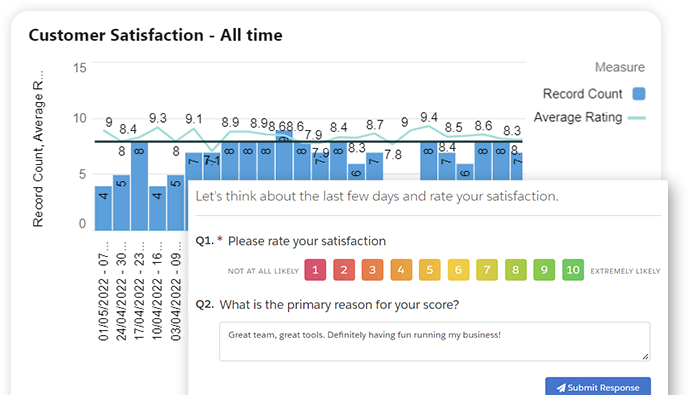
It’s a great way to keep track of client info, including project history, communication logs, and billing information.
Account managers can provide personalized service and respond quickly to client requests.
Disadvantages of ERP for professional services companies
While ERP solutions offer numerous benefits, there can also be drawbacks for professional services firms. Before you invest, consider the following!
High initial costs
The initial investment in an ERP system can be expensive, especially for small and mid-sized firms. A mid-sized business can expect to spend anywhere from $150,000 to $750,000 on an ERP implementation.
Software licenses, hardware, and implementation costs can add up fast!
Before you make a decision, make sure you consider the long-term benefits and return on investment. Don’t just invest on a hunch.
Complex implementation
It’s a complicated and time-consuming process to deploy an ERP system. The entire process can be disruptive and decrease productivity during the transition period if significant changes are made to existing processes and systems!
To minimize disruptions for your team, you need a clear implementation plan. But you also need to communicate with employees to keep them updated about the changes.
System inflexibility
If your company is a professional services firm, your ERP system might not be flexible enough. Depending on the solution you choose, you may find you can’t customize the system to meet your needs.
As such, when it’s time to adapt for future growth, you may get stuck.
Insufficient customization
The right ERP systems don’t always come with the industry-specific features and functionalities professional services companies need! That’s because they’re not designed with this industry in mind.
That’s why you should carefully evaluate the system’s capabilities first. Consider customization options before making a decision so that you don’t waste money.
Why PSA tools are a smarter option for professional services firms
While ERP systems have potential drawbacks, a professional services company can successfully implement them and see significant benefits in terms of efficiency, streamlined processes, and better decision-making.
Be sure to weigh the benefits and drawbacks before making a decision, and work with experienced professionals if you want it to work.
But what if you decide an ERP isn’t the best solution for you?
Another option is to consider a PSA platform instead.
One of the key benefits of PSA tools is that they can be customized to your organization.
They can:
- Streamline operations
- Reduce costs
- Improve profitability
Unlike traditional ERP systems, PSA systems are specifically designed to meet the needs of professional services firms! That’s why a PSA tool offers industry-specific features that can be customized to meet the unique needs of different professional services companies.
Plus, it’s easy to use!
It’s also usually easier and faster to implement PSAs than full-scale ERPs, which means less downtime for your team.
Additionally, PSA tools are usually more cost-effective than ERP solutions, which can be helpful for firms that need to implement new software quickly and efficiently.
PSA systems require fewer licenses, hardware, and implementation resources, so they’re more cost-effective for professional services firms.
But they’re also scalable, which means you won’t be limited by a tool you’ve outgrown.
It’s especially important for firms looking to expand or enter new markets.
How to choose the right PSA for your professional services company
You’ve got a lot of PSA solutions out there, so it can be hard to pick the right one. Here’s what to think about:
- Make sure the PSA tool has the features your company needs, like time tracking, resource management, and billing. PSAs should be able to streamline your business processes, improve team productivity, and give you real-time insight into financial performance, resource utilization, and project status.
- Customizability: Find out if the PSA system can be customized to suit your company’s needs and processes. Every professional services firm has its own workflows and practices. You want a PSA system that’s customizable so that you can add and remove features, change workflows, and make custom reports to fit your business needs.
- PSA integrations: Check if it’s easy to integrate with other software tools your organization already uses, like CRM or accounting. For example, if you use Salesforce, pick a PSA that’s native to Salesforce!
- If you want your PSA system to grow with your company, it should be able to accommodate new users, projects, and workflows. As your business grows, your PSA system should be able to adapt and enhance as needed. Having a scalable PSA system won’t cause you to outgrow it and switch to another one, disrupting your business.
- Research the vendor’s reputation and track record to see if they’re reliable and offer software updates all the time. You should get great customer support from a good vendor, including training, implementation, and ongoing maintenance. They should also make sure your PSA system has the latest security patches and features.
By considering the factors mentioned above, you can select a PSA system that meets your business needs. This will improve your team’s productivity and help you achieve your business goals.
Streamline Your Professional Services Business With The Right Platform
Now you should have a better idea of whether an ERP is the right solution for you.
If you’ve found that’s not the case, you can book a demo with the Klient PSA team to discuss your needs!
With the right PSA tool implemented, your professional services organization can cut down on manual processes while increasing profit margins. And we’ll let you know whether Klient PSA is that tool.

You liked this Klient Tip? Share it with your team!
Discover more articles from Klient

Replace all your tools with Klient, Salesforce #1 PSA platform
Run your entire SaaS and consulting business on a single professional service automation platform native to Salesforce!

